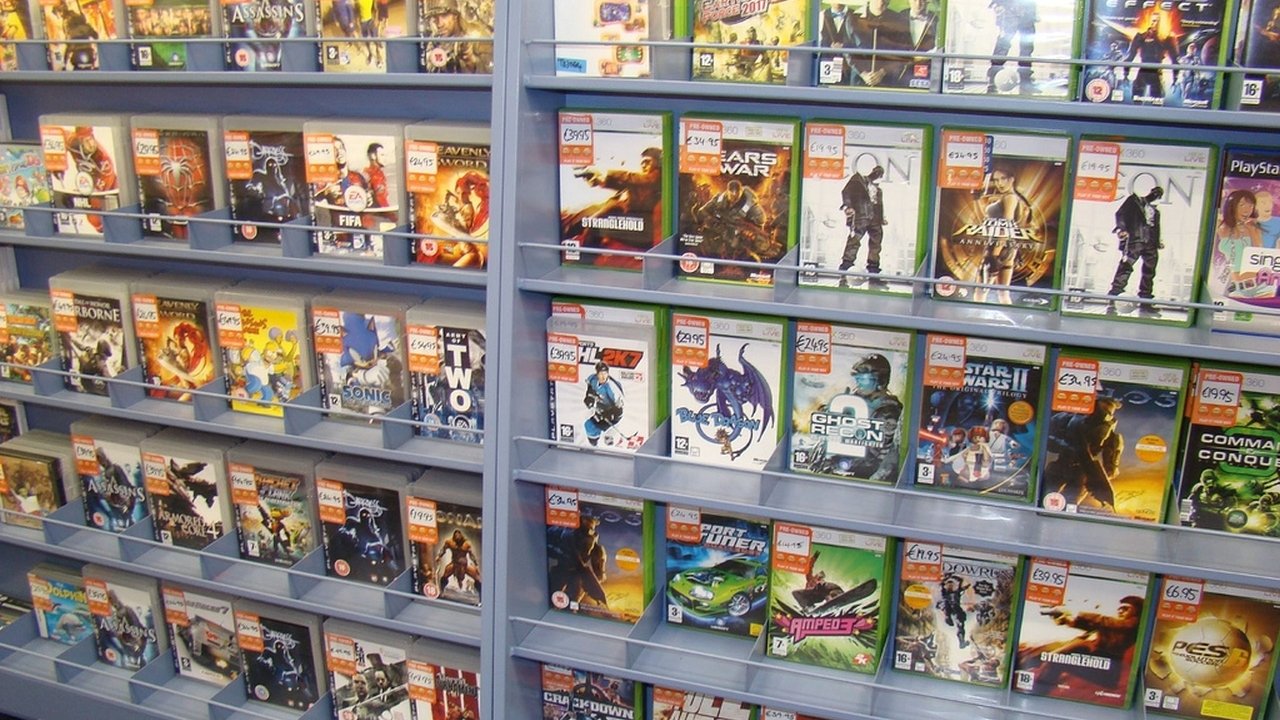When I walk into a book store, I can stroll over to the mystery, science fiction, spiritual, architecture or biography sections. When I walk into a music store, I can browse through jazz, rock, pop, classical, alternative or metal. When I walk into a video store, I can peruse comedies, dramas, documentaries, horror, or action.
When I walk into a game store, I can check out Xbox 360, Playstation 3 or Wii sections. In the immortal words of Sesame Street, “One of these things is not like the others.”
In the immortal words of Sesame Street, “One of these things is not like the others.”
I don’t know about anyone else, but I think there’s a problem when an industry that just grabbed $1 billion in 15 days for one company alone is one of the fast growing businesses in entertainment and also one of the worst organized for its customers. What is the rationale behind this? Is there a belief that gamers are somehow dumber than other consumers of entertainment and too much categorizing would hurt their pwitty wittle heads? Or are there simply too few games available on the market to justify breaking them up into genres like most other forms of entertainment?
To be fair, game stores are not complete organizational anarchy. The average dedicated game store like EB Games or Gamestop does at least divide their titles up hardware platform. In the case of EB Games, some stores will alphabetize their used titles. But for most places dividing the content up by the system it’s available for is about as far as it goes.
This doesn’t really help you, if you’re a DS owner looking for a puzzle game and you have to sift through Final Fantasy III and Elite Beat Agents before finally tracking down that Professor Layton game you were actually looking for. And God help you if you’re trying to track down something as specific as Shin Megami Tensei III: Nocturne which is a PS2 era game, and thus on a dead platform.
There is a belief—justified or not—within the brick and mortar, retail gaming sector that there’s no point in giving games the same kind of organization that other media enjoy because the gamers are only interested in new games. Anything older than six months, they believe, is not something that people will buy, and thus there’s no point in making it easy to find. It’s one of the reasons why individually owned and operated retro game stores can actually exist when their counterparts in the book and music industry have been squeezed out by bigger businesses. Big retail gaming feels like it needs to keep its inventory a moving target, always light, always current, never focused on the past. And if that’s the case, then why should you worry about whether a gamer can find an RPG or an FPS or even a fighting game easily on the shelves? They’re only going to come in during November to buy the latest Call of Duty game, or in May, to buy the next Grand Theft Auto game, they’re not even going to look at the other shelves, much less complain about a lack of organization.
Big retail gaming feels like it needs to keep its inventory a moving target, always light, always current, never focused on the past.But I have to wonder if this is really true, especially now in these lean financial times. Most gamers—even ones with the money to do it—do not buy every single game they want on the day they hit the stores. One reason obviously is cost. The other is time. In the same way that a book lover does not necessarily buy every book from every favorite author as the books come out, gamers—because games can take hours and hours to complete—are becoming more selective about what and when they buy a game. Sure, a playthrough of Darksiders II or even Kingdoms Amalur may be in the cards someday, but those games take time, and maybe there will be time to unwind with that during summer vacation or spring break. Or perhaps a gamer only finally got around to playing God of War III for the first time and would like to go back and play the previous installments. These are not necessarily going to be easy games to find in a store shelf, even if they are more recent titles.
Is this something that we, as gamers are okay with? That in order for us to have full access to the entire breadth and depth of an entire console’s offerings, we have to go online or to a mom n’ pop retro store, because the nearest big retailer can’t be bothered? This is acceptable? I can go to a music store and be assured that I will somehow be able to track down a good chunk of Ella Fiztergald’s albums in the shelf, or Christopher Nolan’s movies at video store. Tracking down all the Fatal Frame games? Lots of luck with that.




